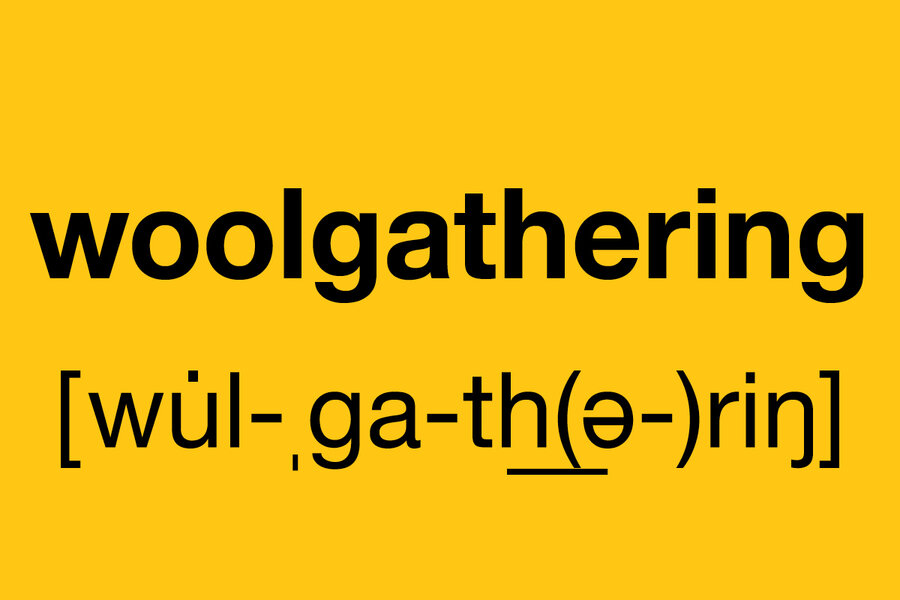‘Woolgathering’ and other not-so-idle pursuits
Loading...
A person who is woolgathering is idly daydreaming. Someone at loose ends has nothing in particular to do. Folk etymology holds that these two idioms, which in different ways imply inattention to more important tasks, arose from the same situation – someone assigning busywork to others, to prevent them from being idle. They are similar, too, in that both their folk etymologies are mostly wrong.
According to Brewer’s Dictionary of Phrase and Fable (circa 1870), the idea of woolgathering comes from rural mothers tasking their children with picking tufts of wool off hedges, as a way to keep them occupied. The dictionary explains, “While so employed, they are absent, and to a trivial purpose.” A commentator on the dictionary adds, “The phrase came to be used contemptuously of those engaged in any trifling pursuit, and so not attending to serious matters.”
It’s not mothers coming up with ways to keep the kids out of trouble in the case of at loose ends – it’s superior officers on board large sailing ships. These ships carried lots of rope (one 18th-century British battleship had 31 miles of rigging), which tended to unravel. When sailors were sitting around doing nothing, they would be ordered to find and bind up, or “whip,” the ends of any rope that was coming apart. Idle men would thus find themselves “at loose ends.”
Elements of these folk etymologies are true, but they are misleading. Woolgathering was first used to mean “daydreaming” in the 16th century, when the task was not silly make-work for children but an important contribution to the livelihoods of poor people. Those who were unable to perform more demanding jobs – older women and very young children – would collect tufts of wool that had snagged on bushes, either to sell or to spin to make their own clothing. Woolgathering was a traditional and important right of rural poor people, a kind of gleaning just like collecting grains and vegetables from fields after harvest.
Today, woolgathering sounds harmless – one wanders contentedly among the hedgerows. Its negative connotations – absent-mindedness, fuzzy thinking – however, reflect scorn for the impoverished women who relied on it long ago.
The actual origin of at loose ends is more prosaic. Sailors did, and indeed still do, need to bind up rope when it starts to unravel, but this appears not to have been the source of the phrase. According to the Cambridge Dictionary of American Idioms, it is based on “the idea of a string or rope with ends that are not neatly tied together.” The loose ends of a rope are not doing anything useful, just hanging there; a person at loose ends is metaphorically doing the same thing.





